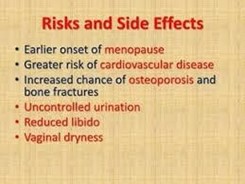A nurse on a mental health unit is admitting a client following a suicide attempt. Which of the following actions is the nurse's priority?
Establish a therapeutic relationship with the client.
Instruct the client on stress management techniques.
Have the client sign a no-suicide contract.
Maintain constant observation of the client.
The Correct Answer is D
Choice A rationale:
Establishing a therapeutic relationship is important, but the immediate priority is to ensure the safety of the client by maintaining constant observation.
Choice B rationale:
Instructing the client on stress management techniques is important, but safety comes first.
Choice C rationale:
Having the client sign a no-suicide contract may provide some reassurance, but it is not a substitute for constant observation.
Choice D rationale:
Maintaining constant observation of the client is the priority to prevent any further self-harm or suicide attempts.
Nursing Test Bank
Naxlex Comprehensive Predictor Exams
Related Questions
Correct Answer is D
Explanation
Choice A rationale:
Weight loss is not typically an expected manifestation following a total abdominal hysterectomy.
Choice B rationale:
Increased libido is not necessarily an expected manifestation following a total abdominal hysterectomy.
Choice C rationale:
Decreased menstrual bleeding is expected, as the uterus has been removed.
Choice D rationale:
Vaginal dryness is an expected manifestation following a total abdominal hysterectomy due to the removal of the ovaries, which produce hormones that contribute to vaginal lubrication.

Correct Answer is C
Explanation
Choice A rationale:
Developing influenza after receiving the vaccine the previous year is not a contraindication for receiving the vaccine this year. In fact, the vaccine is recommended annually.
Choice B rationale:
Hypertension is not a contraindication for receiving the influenza vaccine.
Choice C rationale:
Clients with a history of Guillain-Barré syndrome should generally avoid receiving the influenza vaccine due to a potential increased risk of recurrence of the syndrome.
Choice D rationale:
Allergies to dairy products are not a contraindication for receiving the influenza vaccine.
Whether you are a student looking to ace your exams or a practicing nurse seeking to enhance your expertise , our nursing education contents will empower you with the confidence and competence to make a difference in the lives of patients and become a respected leader in the healthcare field.
Visit Naxlex, invest in your future and unlock endless possibilities with our unparalleled nursing education contents today
Report Wrong Answer on the Current Question
Do you disagree with the answer? If yes, what is your expected answer? Explain.
Kindly be descriptive with the issue you are facing.
